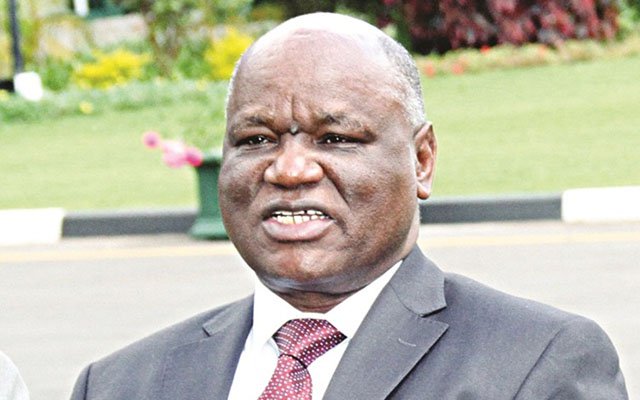THE Judicial Services Commission is finalising administrative mechanisms to ensure that the long-awaited Commercial Court (ComCourt) becomes operational this year, Chief Justice Luke Malaba has said.
"The establishment of this court will have some positive implications as it is being set up in line with the government policy on ease of doing business," Malaba said when he opened the 2018 judicial year.
He said the establishment of the ComCourt would boost direct foreign investment into the country. Investors, he said, would be assured that their investments would be protected by the law and that any disputes would be resolved swiftly.
"Its presence will ensure that commercial disputes are dealt with and finalised expeditiously. Most jurisdictions have created commercial courts in the judicial systems and they have benefited from the ratings of their countries by the World Bank. Zimbabwe will obviously reap the same benefits," Malaba said.
Last year, government gazetted the proposed establishment of the ComCourt, which it said would be a specialised division of the High Court of Zimbabwe.
Malaba said he hoped that the new ComCourt would be a truly stand-alone court and that it would be located away from the High Court.
Zimbabwe has battled perception problems from the international community under the leadership of former president, Robert Mugabe, which expropriated land from whites for redistribution to blacks. The expropriations resulted in the violation of property rights.
The country's indigenisation law - viewed by foreign investors as a smash and grab law - further compounded fears among foreigners.
Commercial courts are considered to have a competitive advantage for emerging markets desperate for foreign investment as they facilitate speedy resolution of disputes.
Zimbabwe's neighbours, Zambia, Lesotho, South Africa and Mozambique already have commercial courts.
According to the World Bank - which annually publishes the Arbitrating and Mediating Disputes indicators that assess the legal and institutional framework for commercial arbitration, mediation and conciliation regimes in 100 economies - an effective commercial arbitration regime is a matter of priority for foreign investors.
"Commercial contracts are increasingly complex and often require reliable, flexible dispute resolution mechanisms. Commercial arbitration and other alternative dispute resolution mechanisms give the parties the autonomy they need to create systems tailored to their disputes.
"In addition, foreign investors view arbitration as a way to mitigate risks by providing legal certainty on enforcement rights, due process and access to justice," the World Bank noted in its 2016 report.
"Thirty-nine economies host private institutions which offer fast-track arbitration services, i.e, time-bound arbitration for faster and less expensive resolution of disputes, and 17 host institutions, which offer online arbitration services, allowing online arbitration proceedings to save time and expense.
"Globally, arbitration proceedings take 326 days on average, while recognition and enforcement proceedings of foreign arbitral awards take 557 days on average," the Breton Woods institution indicated.
- fingaz
 Concern over Masvingo black market
Concern over Masvingo black market  Kenya declares three days of mourning for Mugabe
Kenya declares three days of mourning for Mugabe  UK's Boris Johnson quits over Brexit stretegy
UK's Boris Johnson quits over Brexit stretegy  SecZim licences VFEX
SecZim licences VFEX  Zimbabwe abandons debt relief initiative
Zimbabwe abandons debt relief initiative  European Investment Bank warms up to Zimbabwe
European Investment Bank warms up to Zimbabwe  Young Investment Professional (YIP) Graduate Programme 2019
Young Investment Professional (YIP) Graduate Programme 2019 











 Young Investment Professional (YIP) Graduate Programme 2019
Young Investment Professional (YIP) Graduate Programme 2019
Editor's Pick